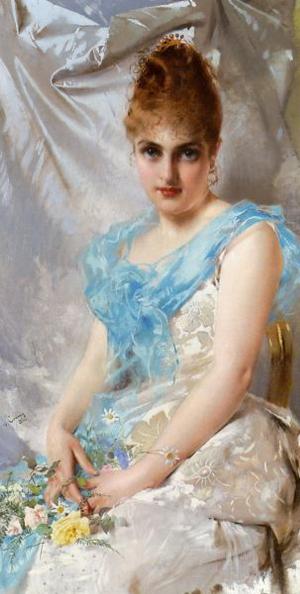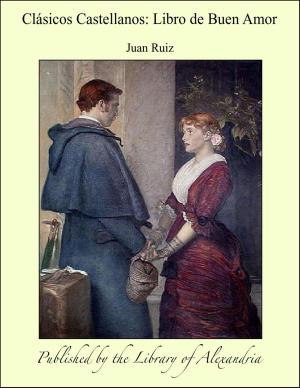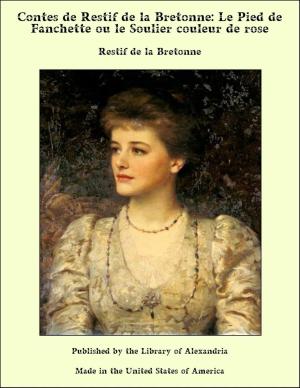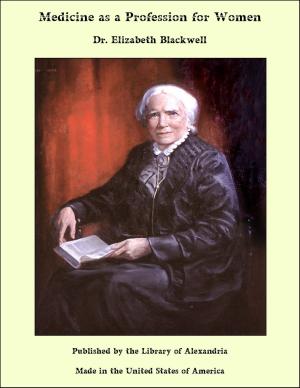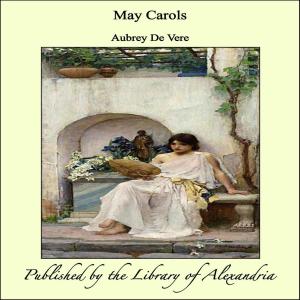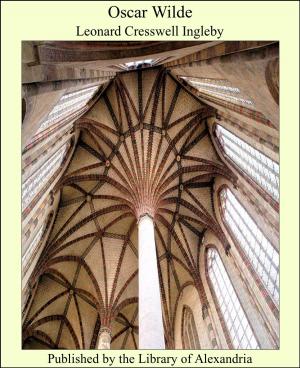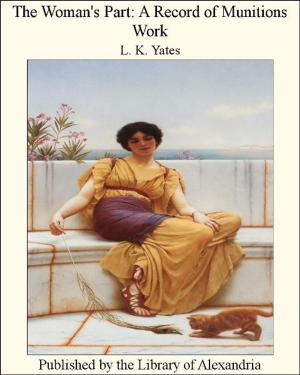The Flower of The Flock (Complete)
Nonfiction, Religion & Spirituality, New Age, History, Fiction & Literature| Author: | Pierce Egan | ISBN: | 9781613107881 |
| Publisher: | Library of Alexandria | Publication: | March 8, 2015 |
| Imprint: | Language: | English |
| Author: | Pierce Egan |
| ISBN: | 9781613107881 |
| Publisher: | Library of Alexandria |
| Publication: | March 8, 2015 |
| Imprint: | |
| Language: | English |
A bright sunny morning, at the end of June, in busy, restless London. The overarching vault of heaven was filled with an atmosphere of golden hue. Sunshine was glowing upon cathedral turrets and upon the church spires, upon the pinnacles of lofty buildings, and the crowns of tall factory shafts. The bronzed and tarnished ball and cross of St. Paul’s, and the shaggy-crested Monument, which “like a tall bully lifts its head,” shone as if they had been newly gilded. There was sunshine upon chimney-pots and housetops, golden beams permeating the confined air in close garrets, through their narrow, half-closed windows; flooding wide streets, and illuminating pestiferous courts, where riotous hilarity sometimes, but joy never came. Sunshine blazed upon the broad and winding Thames, over whose flowing surface lazy barges dawdled, and panting river steamers raced, leaving in their sinuous paths myriads of scintillations—and rather an unpleasant odour as well. Sunshine was on the footways, and in the roadways, and in the gutters, making mirrors of small muddy pools. Sunshine there was for the ragged and the richly dressed; for the beggar and the prince alike; for the robust and, happily, for the sickly invalid. Sunshine everywhere, making brilliant the parks and open places, and interpenetrating all the foulest recesses of this huge city. Giving light where it was rarely seen, and rousing to a glad activity the teeming life already in its first throes of daily labour. Beautiful in this, the bright sunshine! but oh, yet more enchanting in the glory with which it invested the fair face of a young girl, peering out of the upper window of a house situated in one of the City’s closest streets. She stood there, gazing heavenward, her mild blue eyes bending beneath the influence of the golden glare of sunny-waves of light, yet seeming to revel in their luxuriance as though they spoke to her in fairy language of other and happier times and places now far away. Upon the opposite side of the street, in the shop of a working goldsmith, one John Harper, there stood a youth, an apprentice to the noble art of working in gold. The beauty and the clearness of the fair morning had elevated and refreshed his youthful spirits, but ah! how much greater their exhilaration when his upturned eyes were gladdened by the sight of that beautiful young girl, whose radiant face, and delicately modelled form, were brought out in brilliant relief by the dazzling sunbeams. It seemed to him that his brightest conceptions of the beautiful, his dreamy fashionings of a faultless ideal, combined with all his native and his acquired skill, had never yet enabled him to realise “a thing of beauty” to rival the perfect excellence and marvellous charms of that young face upon which his eager eyes were now fastened. Raphael, in his rarest art-performance had not in his belief attained the sentiment of angelic purity beaming in her features, nor had Carlo Dolci, in the loveliest Madonna he ever painted, anticipated it.
A bright sunny morning, at the end of June, in busy, restless London. The overarching vault of heaven was filled with an atmosphere of golden hue. Sunshine was glowing upon cathedral turrets and upon the church spires, upon the pinnacles of lofty buildings, and the crowns of tall factory shafts. The bronzed and tarnished ball and cross of St. Paul’s, and the shaggy-crested Monument, which “like a tall bully lifts its head,” shone as if they had been newly gilded. There was sunshine upon chimney-pots and housetops, golden beams permeating the confined air in close garrets, through their narrow, half-closed windows; flooding wide streets, and illuminating pestiferous courts, where riotous hilarity sometimes, but joy never came. Sunshine blazed upon the broad and winding Thames, over whose flowing surface lazy barges dawdled, and panting river steamers raced, leaving in their sinuous paths myriads of scintillations—and rather an unpleasant odour as well. Sunshine was on the footways, and in the roadways, and in the gutters, making mirrors of small muddy pools. Sunshine there was for the ragged and the richly dressed; for the beggar and the prince alike; for the robust and, happily, for the sickly invalid. Sunshine everywhere, making brilliant the parks and open places, and interpenetrating all the foulest recesses of this huge city. Giving light where it was rarely seen, and rousing to a glad activity the teeming life already in its first throes of daily labour. Beautiful in this, the bright sunshine! but oh, yet more enchanting in the glory with which it invested the fair face of a young girl, peering out of the upper window of a house situated in one of the City’s closest streets. She stood there, gazing heavenward, her mild blue eyes bending beneath the influence of the golden glare of sunny-waves of light, yet seeming to revel in their luxuriance as though they spoke to her in fairy language of other and happier times and places now far away. Upon the opposite side of the street, in the shop of a working goldsmith, one John Harper, there stood a youth, an apprentice to the noble art of working in gold. The beauty and the clearness of the fair morning had elevated and refreshed his youthful spirits, but ah! how much greater their exhilaration when his upturned eyes were gladdened by the sight of that beautiful young girl, whose radiant face, and delicately modelled form, were brought out in brilliant relief by the dazzling sunbeams. It seemed to him that his brightest conceptions of the beautiful, his dreamy fashionings of a faultless ideal, combined with all his native and his acquired skill, had never yet enabled him to realise “a thing of beauty” to rival the perfect excellence and marvellous charms of that young face upon which his eager eyes were now fastened. Raphael, in his rarest art-performance had not in his belief attained the sentiment of angelic purity beaming in her features, nor had Carlo Dolci, in the loveliest Madonna he ever painted, anticipated it.


